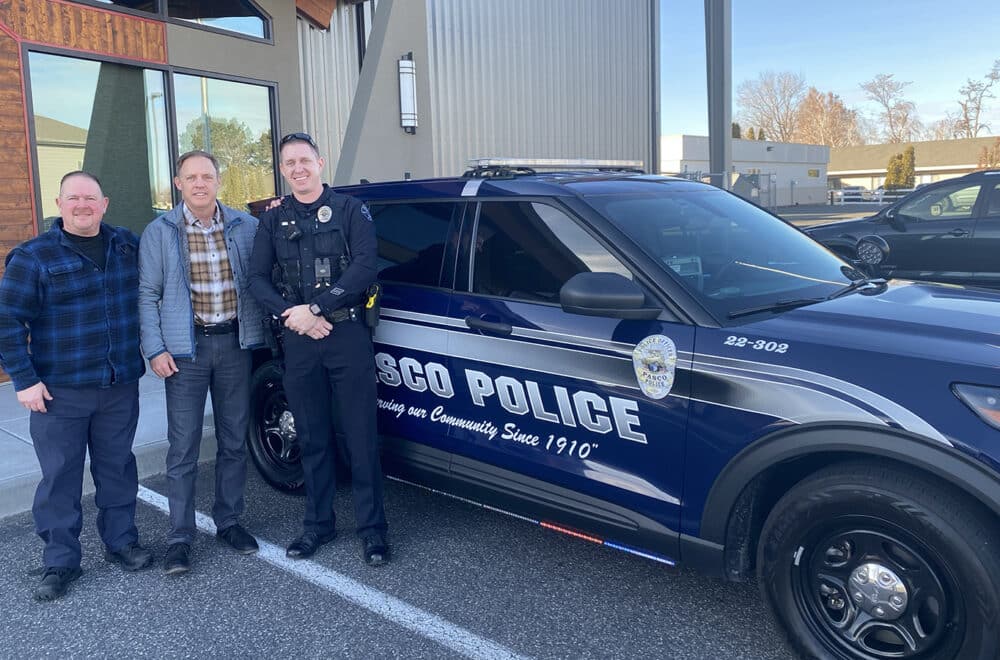Jesus’ Followers See the World Through His Eyes
One day, as Jesus was going about His usual business of traveling from town to town, He stopped and called something to the attention of His disciples. They were in the midst of a crowd, yet the disciples were apparently oblivious to the people around them, like we are when we’re in a crowded mall.
Jesus, however, saw the people. He saw them as “harassed and helpless, like sheep without a shepherd” (Matthew 9:36). He saw their frustration, anger, and sorrow. He saw that they were busy going nowhere in particular. I can imagine Him saying to His unseeing disciples, “Look at that woman over there. See her face? What do you suppose life is like for her?”
Then Jesus made a statement that captures the essence of the basic problem in the world: “The harvest is plentiful but the workers are few” (v. 37). Jesus offered an equally succinct solution: “Ask the Lord of the harvest, therefore, to send out workers into his harvest field” (v. 38).
The next thing we read about the twelve is that they are paired up and traveling through the villages of Galilee. They had become the workers Jesus had told them to ask God for. This tends to happen to people who pray for workers!
A Disciple’s Mission
Generations of disciples were at the heart of Jesus’ plan. The only way such a plan can work is for each generation to disciple the next. That is why Jesus’ parting words were, “Make disciples of all nations. Teach them to obey everything I taught you” (see Matthew 28:18-20).
The people whom the twelve evangelized and discipled were every bit as strategic to the progress of the Gospel as the original disciples were. These new believers were the insiders to their communities, with natural connections to families, society, and the workplace. As such, they were positioned to take the Gospel into the very crevices of their society—something the apostles could not do.
Each one of us is uniquely connected to a network of lost people who constitute our calling. We can be like the twelve were at first—blind to the people around us. Or we can become what the twelve became—workers sent by God to those who are lost.
A Disciple is Available to Christ
Jesus said, “Whoever serves me must follow me; and where I am, my servant will also be” (John 12:26). To follow Jesus means taking the time to be in His presence.
How much time in private does this take? Enough time so that God’s Word holds the predominant influence over our minds. I have read and studied the Scriptures for more than 40 years. The accumulated understanding I’ve gained certainly helps, but it is not the solution to my willfulness. Encounters with Christ need to be fresh, frequent, and honest.
I find, however, that I can only go so far with this realigning of my mind and life alone in my closet. I also need the help of my sisters and brothers. The apostle John writes, “If we walk in the light, as he is in the light, we have fellowship [a living bond] with one another, and the blood of Jesus, his Son, purifies us from all sin” (1 John. 1:7). There is something about stepping into the light with one’s needs, in the safety of a loving community, that has no substitute. Disciples were never meant to be lone rangers.
A Disciple Lives as a Citizen of God’s Kingdom
Jesus announced the arrival of the Kingdom: the eternal, unshakable rule of God over all that exists. Salvation is being “rescued … from the dominion of darkness and brought … into the kingdom of the Son,” (Colossians 1:13). It transforms us from prisoners into citizens, members of the royal household, and heirs!
We are citizens of a different place. We should live accordingly. The ways of the Kingdom run counter to the ways of our society. The Bible instructs the way we think, go about our work, raise our children, use our time and money, and even relate to our enemies. Our citizenship is a 24-hour-a-day, seven-day-a-week affair. Every action, every attitude, should be a statement to the world that there is a better way to live.
A Disciple Gives His or Her Life to People
In one of His last conversations with His disciples, Jesus said, “Unless a kernel of wheat falls to the ground and dies, it remains only a single seed. But if it dies, it produces many seeds” (John 12:24).
Jesus was talking about Himself. He died—and here we are, billions of us across the centuries! We are the seeds from His surrendered life.
In the next verse, Jesus applied the same rule to us: “The man who loves his life will lose it, while the man who hates his life in this world will keep it for eternal life” (v. 25).
What does it mean to love one’s life? It is living life and keeping one’s discretionary time for one’s self. Jesus died for a lost world. He calls on us to do the same. That means drawing in the people who need Him most. But the cost for doing this is the death of our own self-centered lifestyles.
When my wife, Marge, and I moved from Brazil to Colorado Springs to help lead the international work of The Navigators, all my colleagues were Christians—and they were also very good friends! I explained to them that Marge and I needed to find our friendships among people who didn’t know Christ. Over the years we watched in wonder as the power of the Gospel has transformed one neighbor after another.
Open Your Eyes
We need to open our eyes and see what is happening. Jesus’ analysis still stands. The harvest is plentiful, and the workers are few. But, His solution still stands, too.
Go stand on your porch. Pray for the people in the houses around you, even if you don’t know their names. Ask God to send someone to them. See what happens! It’s your mission as a disciple.
Jim Petersen served faithfully with The Navigators in Brazil for a number of years before serving at the International Office in Colorado Springs. He is now retired.
D! Excerpted from Discipleship Journal, Issue 100, July 1997. Used by permission of NavPress.




Dear Mr. Petersen, Thank you very much. Your first book, Evangelism as a Lifestyle, had a profound impact on my understanding of proclamation of the gospel. I was in the army in ’77-’80 and my wife and I lived in Fulda West Germany during that time, and she had a copy of your 24 Hours with John study which you had handed out at a conference she attended when she was in college. We led our first evangelistic study in John in early 1980 before we left Germany. Your illustration regarding spiritual transformation in your book, Church Without Walls, had a similarly profound effect on my understanding of Ephesians 6:10-18, which, I think, is the basis of our affirmation of the gospel.My wife and I are very grateful for you and your ministry in our lives.
Jim, Thank you for your powerful and personal words. They are an important part of the message that the Holy Spirit has been giving me. Each message inspires me toward a more constant, consistent need to live my faith in both action and example. God bless you and yours. Keep spreading His love!